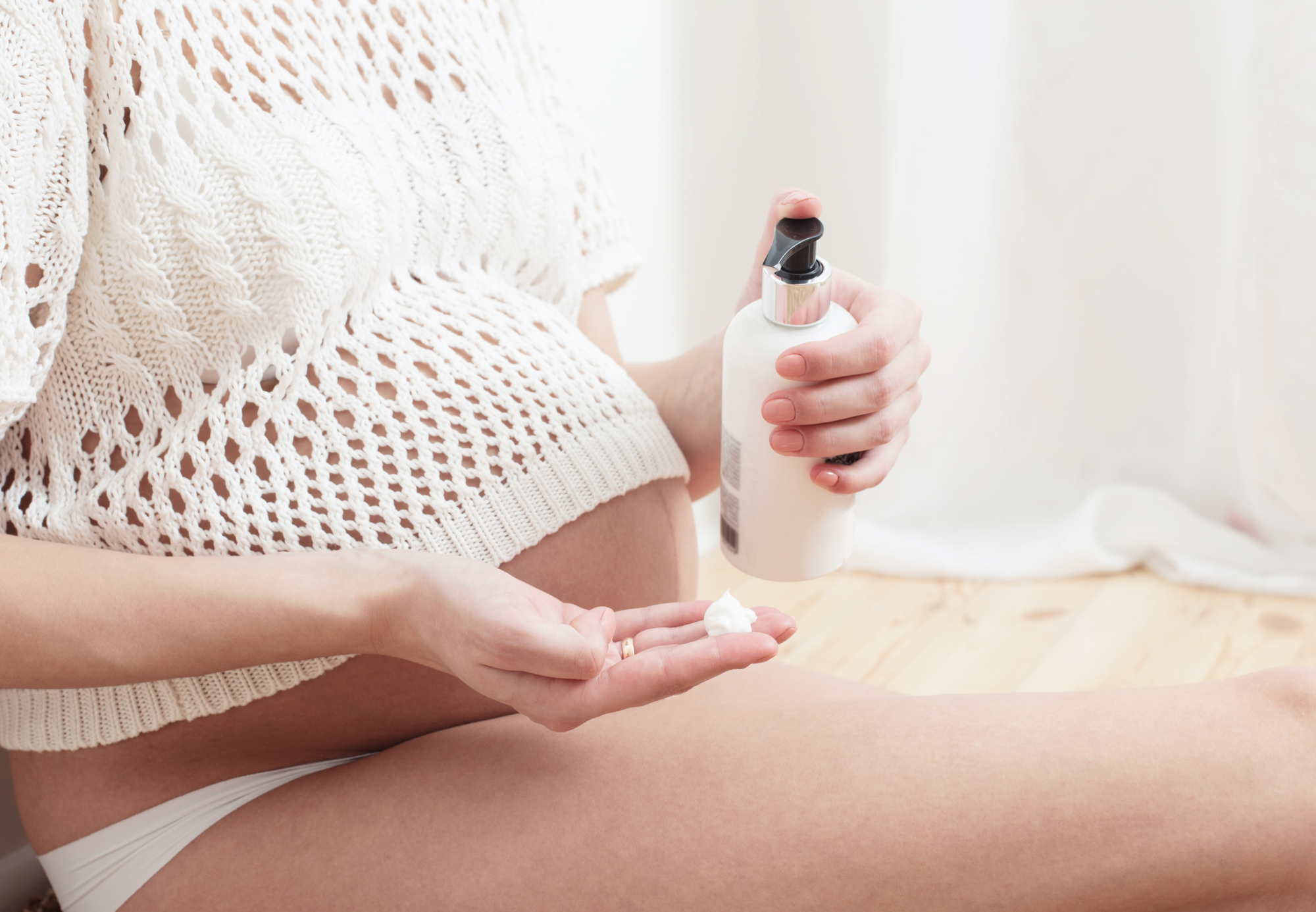As we know, each pregnancy can be different from the previous one and therefore we never know how our skin may react each time. Typically your skin condition can either better or worsen during pregnancy, all depending on your hormones and the condition of your skin pre-pregnancy. Here are 5 ways to save your skin during your next pregnancy according to Christie Cameron Senior Dermal Skin therapist from SSKIN Clinic and expert for RosehipPLUS:
Taking care of pigmentation
During pregnancy you can experience increases sensitivity to sunlight and paired with a surge in pigment producing hormones there is a high risk of developing melasma ( large patches of discolouration on the skin) during pregnancy. It usually fades post pregnancy however can become a long term condition.
It’s extra important to be sun safe during pregnancy, and wear a sun protection with both UVB protection and UVA protection. Physical Sunscreens that contain zinc oxide, which acts as a blocker, deflects UV away from the skin like a mirror and is a preferred sun protection for melasma.
Taking care of Acne during pregnancy
With racing hormones, an increase in oil production, many women experience breakouts during pregnancy, especially around the chin, jawline and cheeks. While you definitely need to stay away from acne treatments containing retinol and salicylic acid (a BHA) during pregnancy, you could opt for Azelaic acid. Neither an AHA or BHA, and totally safe to use in pregnancy, azelaic acid can significantly reduce the appearance of blemishes as well as help fade post acne marks and other discolourations to reveal a more even skin tone.
Taking care of sensitivity during pregnancy
When pregnant, the volume of blood can almost double in your body, which can often mean that the ‘healthy glow’ tips over into redness. These Hormonal changes will increase any skin sensitivities and you might find your skin more sensitive than normal with symptoms of redness and flushing, even your normal products may feel irritating on your skin.
Opt for calming, soothing and hydrating products during your pregnancy to help reduce the inflammation. Try a calming face mask and gentle face wash with a hydrating moisturiser to help sooth your sensitised skin.
Taking care of Dryness during pregnancy
While some women’s skin becomes oilier, for others dryness can occur. All the hydration goes to the baby first, so many women experience dry skin.
Make sure you’re eating your water by way of foods with a high water content such as vegetables, fruits and nuts. Also adding in topical ingredients like Hyaluronic acid, which will hold 1000 times it’s weight in water are fantastic at helping to increase the moisture levels in your skin. Also the use of an omega-rich oil at night such as RosehipPLUS rose hip oil can help the skin retain moisture and suppleness.
Taking care of puffiness and swelling during pregnancy
Facial swelling and puffiness is one of those unpopular but common side effects of pregnancy. Usually the consequence of water retention in the face. Your lifestyle choices play an enormous role in how much water your face retains.
Cold therapy through compressions helps to reduce inflammation (like that caused by excessive salt consumption) If the cold doesn’t seem to work at first, try using a warm towel first to help promote the movement of fluid first, followed my a cold face pack (like a gel face mask you can pop in the fridge) Also the use of a gua sha tool is fantastic to help with lymphatic drainage away from the face to help reduce puffiness.









